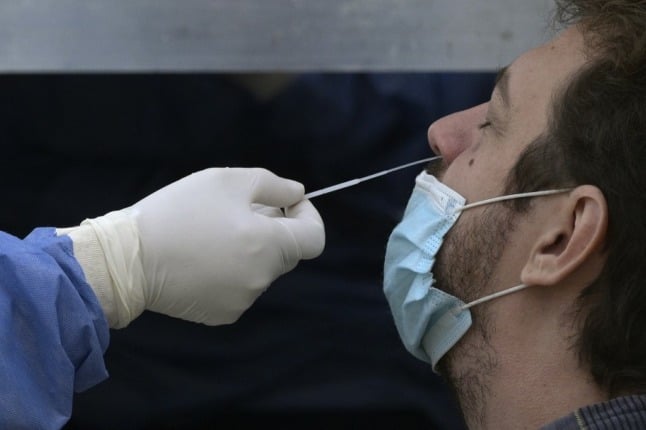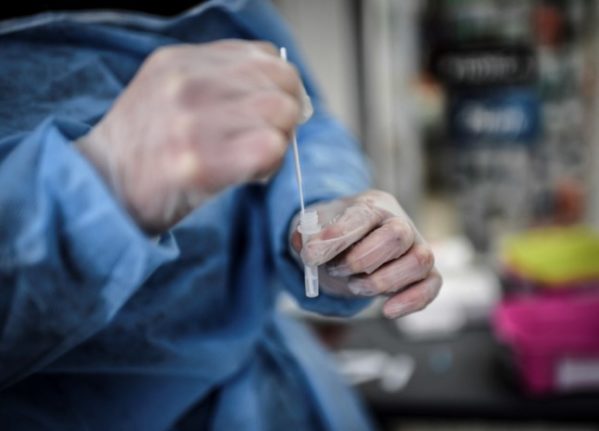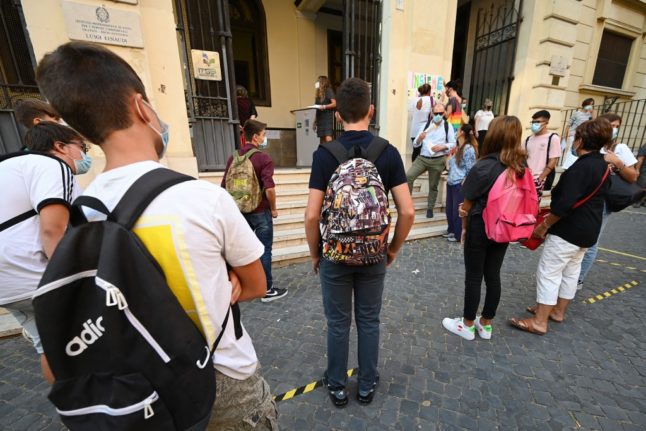The Italian government on Wednesday announced a revision of the coronavirus quarantine rules under a new decree law, amid surging case numbers driven by the highly contagious Omicron variant.
Health experts had urged the government to rethink its quarantine policies amid concern that the high number of infections could paralyse the country by forcing millions to stay at home.
With more than 100,000 people now testing positive daily in Italy, experts warned this could mean half a million more people required to quarantine every day unless the rules were eased.
Several aspects of the new rules were unclear from the initial announcement, but full details were made available on Friday when the government published its latest decree containing the new measures – which were effective immediately.
Here are the new measures in the event of close contact with a Covid-positive person according to the decree text and a circular from the Health Ministry.
What has changed?
The rule change concerns only those who are vaccinated. Unvaccinated people will continue to be required to undergo a ten-day quarantine period, with a negative test result at the end. That includes those who have only received one dose of the two required or those who have completed a vaccination cycle within the previous 14 days.
Quarantine will no longer be required for close contacts if they have had a booster dose, or were fully vaccinated or recovered within the last four months (120 days).
They will instead be required to wear a more protective FFP2 mask at all times in public for 10 days and, if they have symptoms, take a test within five days of contact with the positive person.
During this period a rapid antigen or molecular test should be done at the first appearance of symptoms. If symptomatic, the swab should be repeated on the fifth day following the date of last close contact. The self-monitoring period ends on the fifth day, and no swab is required if a patient remains asymptomatic.
If you were fully vaccinated more than four months ago, the quarantine requirement is reduced to a five-day period followed by a negative test result.
The decree does not mention any changes to the rules on quarantining in Italy after travel from another country.
At the moment, arrivals from most countries do not need to quarantine as long as they can provide proof of vaccination and testing.

What is quarantine?
Italy defines quarantine as “carried out when a healthy person has been exposed to a Covid-19 case, with the aim of monitoring symptoms and providing for the early identification of cases”.
This is as opposed to isolation, which is used “to separate people suffering from Covid-19 from healthy ones in order to prevent the spread of infection”.
What is a ‘close contact’?
According to the health ministry, a ‘close contact’ of a person who has tested positive for Covid-19 is defined as:
– “A person who lives in the same house as a Covid positive person;
– a person who has had direct physical contact with a positive person (eg. a handshake);
– a person who has had direct contact (face to face) with a positive person, at a distance of less than two meters and for at least 15 minutes;
– a person who has been in a closed environment (for example a classroom, meeting room, or hospital waiting room) with a positive person without wearing a suitable mask;
– a health worker or other person who provides direct assistance to a positive person;
– a person who has travelled seated in a section of a train or plane where the positive person was sitting”.
What should you do if you are a ‘close contact’?
The health ministry’s current guidance states that anyone who has been in close contact with a positive person should not go to the emergency room or doctor’s office, but should call their family doctor or their region’s coronavirus helpline. Current guidance tells people to stay at home.
What should you do if you test positive?
The health ministry states that anyone who gets a positive test result should not go to the emergency room or doctor’s office, but should call their family doctor or their region’s coronavirus helpline.
For asymptomatic people who have received the booster or have completed the vaccination cycle less than 120 days ago, the isolation period can be reduced from 10 to 7 days, according to the latest directive.
That is provided the person has always been asymptomatic, or has been asymptomatic for at least 3 days. It’s also on the proviso that, at the end of this period, the patient carries out a molecular or antigenic test with a negative result.
Symptomatic people who test positive can re-enter the community after a period of isolation of at least 10 days from the onset of symptoms, accompanied by a negative molecular or antigenic test after at least 3 days without symptoms (not counting changes in smell and taste).
If the test is still positive, you can leave isolation after 21 days, provided that there have been no symptoms for the last 7 days.
What are the rules for children?
The new quarantine rules will apply to everyone over the age of five.
According to Fabio Ciciliano, a member of the Scientific Technical Committee, the new guidelines for quarantine provided by the latest decree, relate to “positive close contacts and will affect all vaccinated children regardless of age”.
Are there different rules for doctors and nurses?
Yes. Healthcare workers must perform swabs on a daily basis until the fifth day of the last contact with an infected person.
For more information about Italy’s current Covid-19 health measures please see the Italian Health Ministry’s website (available in English).



 Please whitelist us to continue reading.
Please whitelist us to continue reading.
We have been trying to get back to Italy for two years, have postponed four trips! what are the regulations for persons from the US if their vaccination is over four months, are healthy and not boosted?? Hopefully this will change by the spring, as well!
Are unvaxed still allowed in with negative tests? Our children and grandchildren have postponed their trip as well. Thank you for all your help! I love reading The Local!
Okay…maybe it’s the phrasing:
After contact with a positive person t avoid quarantine, is it:
1. If one has had the Booster OR is within a 120 days out from the second shot
OR
2. Does the 120 days apply to BOTH the Booster AND the Second Shot?
It’s impossible (unless one lives in Israel) to get a Second Booster Shot in the US, so this answer applies to me, having been boosted in late September and planning to go to Florence/Assisi in February. I cannot find a clarification anywhere so if “theLocal” can find this info, I would be very appreciative.